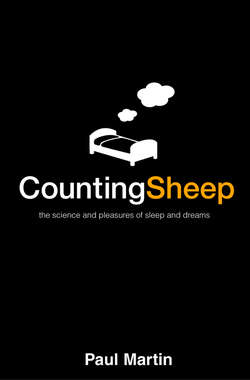Читать книгу Counting Sheep: The Science and Pleasures of Sleep and Dreams - Paul Martin - Страница 14
Are you sleep-deprived?
Оглавление‘… Are you going to bed, Holmes?’
‘No: I am not tired. I have a curious constitution. I never remember feeling tired by work, though idleness exhausts me completely.’
Sir Arthur Conan Doyle, The Sign of Four (1890)
There is no universal, one-size-fits-all figure for the right amount of sleep. Individuals differ considerably in their sleep requirements. The conventional standard of eight hours a night is somewhat arbitrary, though not far off the mark for most people. But the best yardstick for you is your own preferred sleep duration. You can measure this by conducting a simple, if time-consuming, experiment on yourself. You will need two weeks of complete freedom from the tyranny of work schedules and alarm clocks, which means you will probably have to wait until your next long holiday (and possibly much longer if you have small children).
What you do is this. Every night for about two weeks, go to bed at approximately the same time. Make a note of the exact time just before you turn off the light to go to sleep. Then sleep to your heart’s content until you wake spontaneously the next morning – not with the aid of an alarm clock. Note down the time when you woke up and, ideally, a more precise time for when you think you fell asleep the night before. (All being well, this should have been within 10–20 minutes of turning out the light.) Your time of waking should be when you first became fully conscious, not when you eventually stumbled out of bed. Then calculate how long you spent sleeping. The experiment will work much better if you do not roll over after waking and doze for a further hour or two before getting up.
Ignore the figures for the first few days, because you will probably be sleeping longer to compensate for your prior sleep deficit. We tend to feel sleepy on relaxing holidays and at weekends because reality has finally caught up with us; when the usual pressures and stimulation that keep us going through the working week are suddenly removed, we sleep more to catch up on the backlog. This extra sleeping is only transitory, however. Once you have caught up and reached equilibrium you should start to feel livelier and more energetic during the day. Unfortunately, by that time the holiday has usually ended and the normal regime of late nights and early mornings resumes.
After a few days, your nightly sleep duration should settle down to a stable figure. Take the average over the final few days: this represents your preferred sleep duration. It should be somewhere between seven and nine hours, although not everyone fits this pattern. Unless you are elderly or have an unusually relaxed lifestyle, your preferred sleep duration will probably be longer than the time you normally spend sleeping. If the difference is very large – say, two or three hours a night – you could be storing up serious trouble for yourself.
